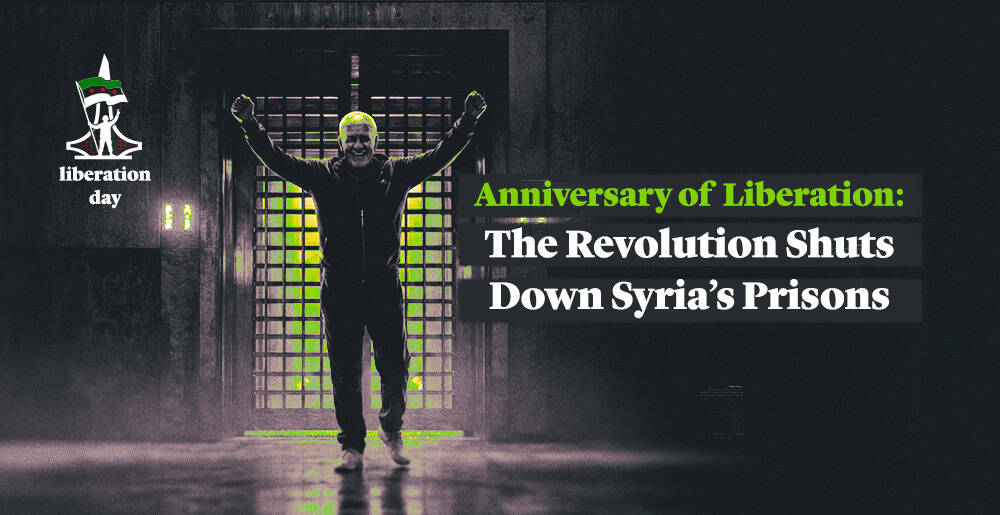Turning it to Advantage: How 'Israel' Politically Benefits from the Iranian Attack?

This strike will divert attention away from the suffering of Palestinians in Gaza. (Photo Illustration by Thomas Levinson/The Daily Beast/Getty)
Israeli newspapers noted that following Iran's response with hundreds of drones and missiles against "Israel" on April 13, 2024, the Israeli state was described as "emerging victorious" from the attack. Some political analysts even advised the government not to retaliate to preserve these gains.
U.S. President Joe Biden also urged the Israeli government not to respond to the Iranian attack, despite its formal severity as the first external attack on "Israel" by another state since Iraqi President Saddam Hussein launched 38 Scud missiles at the Israeli Occupation state in 1981.
Tehran responded with drones and missiles following an Israeli missile attack on its consular section in Damascus in early April 2024, which killed 7 members of the Iranian Revolutionary Guard.
Known Rules
Despite Israeli officials threatening to respond to the Iranian attack and authorizing the War Cabinet, including Prime Minister Benjamin Netanyahu, Minister of Army Yoav Gallant, and Minister Benny Gantz, to make decisions, there is a strong belief that "Tel Aviv" will not respond militarily.
However, Netanyahu's government is expected to exploit the significant Iranian attack to extricate itself from the quagmire of October 7, 2023, where it was immersed by Palestinian resistance in Gaza, and return to focusing on "victimhood" and being the "underdog."
Analysts argue that the results of the Iranian strike did not wipe out "Israel" as Tehran had threatened, only resulting in minor losses at a military base. They affirm that the results of the strike indicate that both regimes are still operating within "previously defined rules of engagement," meaning that "Israel" emerged victorious despite the heavy bombardment of 350 missiles and drones, with Tehran merely seeking to "save face."
Political analyst for Haaretz newspaper, Amos Harel, viewed repelling the Iranian attack as a "major Israeli achievement and victory."
Harel, in his article published on April 14, urged Netanyahu's government not to retaliate, believing that the results of the attack favored "Israel." He warned that any retaliation would risk a "comprehensive regional war," drawing in all resistance factions against "Israel."

American reactions also emphasized informing "Israel" that it had "prevailed," while Iran lost what it launched in missiles and drones. Therefore, Washington will not participate in striking Iran, and Tel Aviv should follow suit.
Axios quoted a White House official on April 14 as saying that Biden told Netanyahu the joint defensive efforts by "Israel," the U.S., and other countries in the region led to the failure of the Iranian attack.
"You got a win. Take the win," Biden told Netanyahu, according to the official.
The official said that when Biden told Netanyahu that the U.S. would not participate in any offensive operations against Iran and would not support such operations, Netanyahu said he understood.
He informed him that efforts by Washington, "Tel Aviv," and other countries thwarted Iran's attack, so there was no need to respond because it did not cause losses.
According to Axios, Biden and his top advisers are deeply concerned that Israeli Occupation's response could lead to a regional war.
Nevertheless, "Israel" pledged "victory" following the Iranian response, according to Reuters on April 14, stating that the fight is not over yet.
Iran responded with a warning to "Israel" and the United States of a "much larger response" if any retaliation to its collective attack occurs.
One of the most significant gains
One of the most significant strategic challenges that "Israel" has faced in its ongoing aggression since October 2023 on Gaza is the deterioration of its global image, appearing as a "Nazi-like" entity engaged in genocide. This has led to its prosecution in international courts and the loss of numerous alliances.
This dilemma transformed it from being a "persecuted state" threatened by its neighbors exercising "the right to self-defense" to revealing its true nature as a rogue entity pursued internationally, committing genocide, according to analysts.
In other words, "Israel" has alleviated pressure and bolstered its "victimhood," regaining access to U.S. and Western weapons supplies after they were almost cut off due to the pressure resulting from the Gaza massacre.
Therefore, it is expected that "Israel" will seek to reconstruct the "image war" that its crimes in Gaza failed, producing another deceptive image for itself as a "persecuted" entity, allowing it to continue killing and exterminating in Gaza and imposing a "fait accompli" (a French expression used in English) in al-Aqsa Mosque without international accountability.
From this perspective came the scene of the Iranian strike (which was pre-determined in every detail by American orbit), specifically at this time and context, to achieve in its final outcome an Israeli strategic interest represented in returning it to the square of "the aggrieved entity under threat from its surroundings."
Also, it is an attempt by "Israel" and Western propaganda machinery to restore the previous image (following Operation al-Aqsa Flood and before the Gaza genocidal war), namely that "Israel" has the right to self-defense and that it is a "targeted and threatened entity" in need of support, not rejection.
This was pointed out by military analyst Ron Ben-Yishai, saying that "Israel" has an opportunity to regain its political legitimacy on the international stage, which has faded during the war on Gaza, after the Iranian attack.
According to the Hebrew newspaper Yedioth Ahronoth, on April 14, 2024, "Israel," along with the United States and other allies, defeated the extensive Iranian air operation.
For this reason, Netanyahu and his known extremist government, with their extremist options, entertained the idea of receiving an Iranian strike, and it was passed with coordination with America and allies (friends) in the region before the rockets passed through their airspace.
Other Gains
The Iranian response to "Israel" presents an opportunity for the latter to reap several other gains, provided it does not retaliate against the strike. These include the restoration of its alliance with America and the unification of the conflicting factions within "Israel," alongside restoring its image tarnished by its crimes in Gaza, according to analysts.
From the perspective of Israeli analysts, the Iranian strike demonstrated America's firm and practical commitment to defending "Israel" and that Tehran would only strike "Israel" in response to an attack against Iran rather than for reasons related to Palestine or any other factor.
From their point of view as well, the Iranian strike will relatively restore cohesion to Israeli society in the face of ongoing threats, thereby reducing protests against Netanyahu.
Former U.S. Ambassador Gina Abercrombie-Winstanley said in an analysis published by the Atlantic Council on April 13 that "Prime Minister Benjamin Netanyahu got three things he needed badly: Gaza has retreated from the conversation, and he can legitimately hope pressure to end the war and relieve Palestinian suffering has moved decisively to the back burner."
On the other hand, "he has returned U.S. President Joe Biden's rhetoric to 'rock-solid support' for Israel, even under his leadership. His willingness to chance a region-wide conflict and draw the United States in, removed a weapon from his political opponents who accused him of weakening the bilateral relationship."
Finally, "he may have reunified Israelis again in the face of danger, which will help keep him in power."
Arab Allies
Among Israeli gains, which it did not even dream of from this Iranian strike, is the emergence and activation of military alliances between it and Arab countries, where their role in repelling Iranian missiles, especially Jordan, was evident, as well as inciting against Tehran and accusing it of causing a regional war.
Arab countries, notably Jordan, participated in countering the Iranian response to "Israel" and intercepting its missiles.
The Jordanian skies were illuminated with anti-aircraft fire, and debris from some of these missiles fell in Jordan, prompting Tehran to threaten Amman.
Before the Iranian strike, Itai Blumental, a correspondent for the Israeli channel Kan, confirmed that "the regional alliance, with its bases in Saudi Arabia, Iraq, and Jordan, will intercept any threat outside Israeli airspace."
The Israeli Public Broadcasting Corporation reported that several Arab countries have expressed readiness to shoot down Iranian drones crossing their territories.
According to the Israeli channel Kan, an Israeli source stated that many "friendly" Arab countries have sent messages indicating their willingness to intercept Iranian drones and missiles launched towards "Israel."
The Israeli army claimed that most of these missiles were intercepted by its air defense systems and those of "strategic partner" countries (not named) before reaching their targets.
In Egypt, it is unclear whether Abdel Fattah el-Sisi's regime participated in intercepting Iranian drones and missiles, but activists shared images of drones flying over the city of Ras Sudr near the Sinai.
Before the Iranian strike, a security source informed the Egyptian media that "a 'crisis cell' comprising all relevant agencies and institutions is closely monitoring developments in the region and providing regular updates to Sisi."
The Egyptian regime's Foreign Ministry warned in a statement of "the danger of regional escalation of the conflict" and called for "the utmost restraint" while affirming "direct communication with all parties to the conflict in an attempt to contain the situation."
Meanwhile, activists cited reasons for Arab countries intercepting drones on behalf of the Israeli Occupation, revealing decades-long secret agreements between Arab countries and "Israel."
They pointed to joint defense agreements governed by secrecy at the request of Arab countries, extensively discussed by Netanyahu in his memoirs.
Reuters quoted two Jordanian security sources as saying, "Our air defenses are ready to intercept and shoot down any Iranian drones or aircraft violating our airspace."
This indicates Israeli Occupation's reliance on the American–European–Arab alliance that helped it repel the Iranian attack, believing that it was this alliance that saved it from the attacks, and without it, the capabilities of the Israeli Occupation state and its fragile security could have been exposed.
Sources
- Analysis | Fending Off Iran Attack Is a Major Israeli Achievement. Retaliation Would Risk an All-out Regional War
- Scoop: Biden told Bibi U.S. won't support an Israeli counterattack on Iran
- Iran launches unprecedented retaliatory strikes on Israel in major escalation of widening conflict
- Experts react: Iran just unleashed a major attack on Israel. What’s next?













